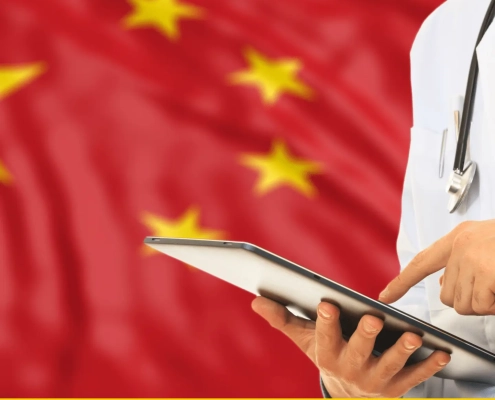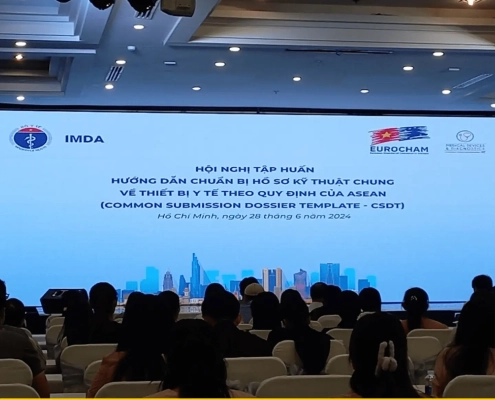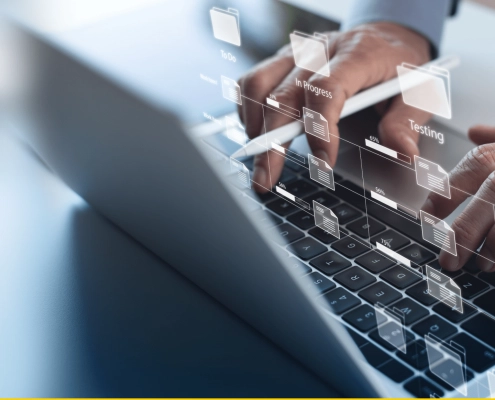Come grow with us in the US in Thailand in China in Korea in the Philippines in Taiwan in Hong Kong
Sign Up For Our Newsletter to Stay Informed
Launching AI Devices and Software as Medical Devices in Thailand
Published August 7, 2020
The novel characteristics of AI software and Software as Medical Devices (SaMDs) are stressing bureaucratic regulatory, customs and taxation systems around the world. Thailand is no exception. While there is no specific guidance yet published by the Thai FDA, manufacturers of these products with home country approval will be able to gain quick and efficient entry to the market. Once approved, it will be important for manufacturers to stay informed of new applicable regulations as they are released to ensure compliance is maintained.
MEDICAL DEVICE SOFTWARE REGISTRATION IN THAILAND
Software as Medical Devices (SaMDs) are considered medical devices in Thailand and subject to pre- and post-market approval requirements by the Thai FDA. Currently all SaMD are categorized as General Medical Devices and require an Import License.
General Medical Devices that contain AI software, or a machine learning component are subject to an Efficiency Review. This involves review of selected technical data by an Expert Panel of clinical specialists. The process takes up to 90 working days. Processing fees depend on the risk classification of the device (as below). Once the Expert Panel is satisfied, the application is released into the standard General Medical Device Registration process.
For the latest information on the regulatory process in Thailand, please click here for our summary.
GOVERNMENT PROCESSING FEES FOR AN EFFICIENCY REVIEW
| Class A | THB 25,000 (US$740) |
| Class B | THB 38,000 (US$1,120) |
| Class C | THB 63,000 (US$1850) |
| Class D | THB 88,000 (US$2,590) |
The standard General Medical Devices process typically takes 2 to 6 days to process and costs ThB 1,100 (US$35). The Thai FDA requires home country approval and licenses are valid for the term of the Certificate of Free Sale (CFS) or up to 5 years, whichever comes first.
LABELING REQUIREMENTS
There are no specific labeling regulations for general medical devices from Thai FDA. By default, labeling is regulated by the Office of the Consumer Protection Board which requires labeling to include the manufacturer’s name or trademark, country of origin, intended use, importer information, storage condition, lot or serial number, and more. In general, the information on the label must be true and accurate and not cause confusion, must be in Thai or Thai with a foreign language(s) that can be seen and read clearly, and must be easily visible on the product, container, package or included in the product manual documentation.
MEDICAL DEVICE ADVERTISING APPROBAL IN THAILAND
The Medical Device regulations in Thailand include the requirement that all advertising material (e.g., print, internet, or video) used in Thailand for a registered medical device must be reviewed and licensed by the Thai FDA as per Notification B.E. 2553 (2010). Applications are processed in 30 days for a fee of ThB 1,000. Once issued, Advertising Licenses are valid for up to 3 years, or the term of the Import License, whichever comes first.
MEDICAL DEVICE SOFTWARE IMPORTING IN THAILAND
Even when a SaMD has no physical form and is delivered over the internet (without a Customs clearance process), the device will still be required to have a fully licensed medical device importer. The Importer will be responsible for post market vigilance reporting, the proactive traceability of devices on the market and retention of device history documents. At this time, there are no specific requirements regarding version controls, but manufacturers should expect to notify the Thai FDA if adding additional intended uses or making significant changes to the software’s functionality.
MEDICAL DEVICE SOFTWARE INVOICING IN THAILAND
As with all registered medical devices sold in Thailand, invoicing must be done by a local importer/distributor with a valid Establishment License issued by the Thai FDA. The local agent will be responsible for collection, payment and reporting of Value Added Tax payments to the Revenue Department. Foreign manufacturers that offer software as a service and employ a sales model to bill hospitals directly, will have to adjust this practice for Thailand. The applicable VAT tax is currently 7%.
Asia Actual has an experienced team of regulatory and commercial experts in Bangkok to provide medical device registration, license holding and importing support services to medical device manufacturers. Contact us with any questions or request for support with your AI software in Thailand.
CONTACT ASIA ACTUAL TODAY
Asia Actual has experience registering AI products in Thailand and throughout the region, including for clinical or research use.
Please contact Asia Actual if your product incorporates AI technology and you would like to learn more about the regulatory requirements and market potential in the region.






